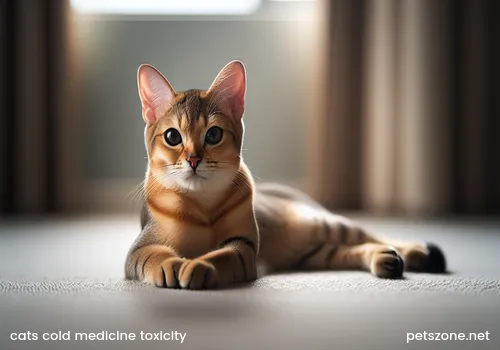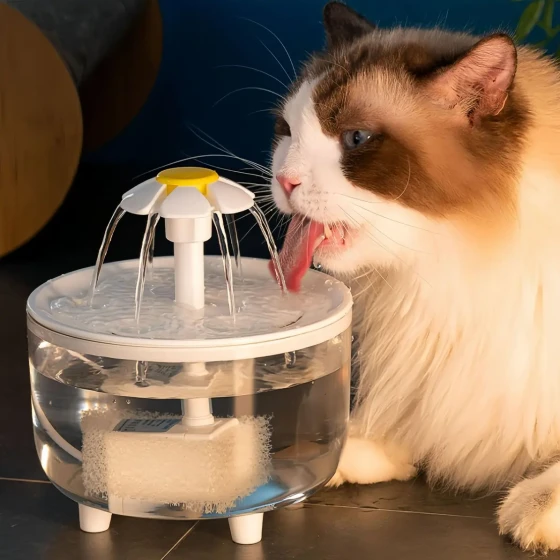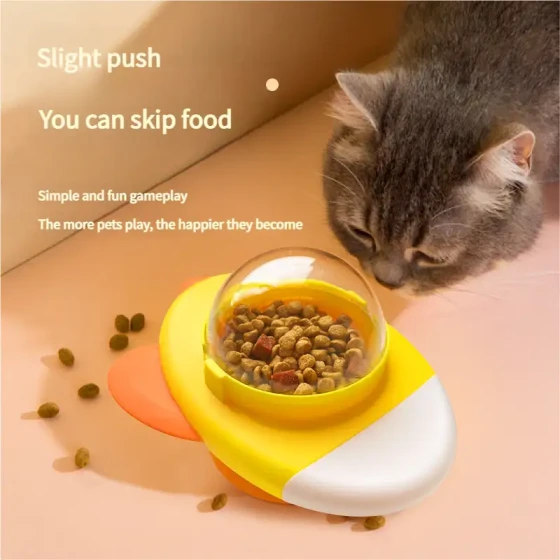Can Cats Eat Human Cold Medicine_Cat Ingesting Cold Medicine Serious Consequences
Can cats eat human cold medicine? The answer is: Absolutely not. Cold medicine meant for humans is highly toxic to cats! Even seemingly tiny doses can lead to serious, even life-threatening health problems in cats.

Why do we humans consider a cold a minor illness, but the medicine for it is so dangerous to cats? This is mainly because cats' physiological structure and metabolism are vastly different from humans. Simply put, a cat’s liver lacks the specific enzymes needed to break down and eliminate certain drug components. It's like humans have a powerful "detox factory" that processes medicines efficiently, but cats' "detox factory" is insufficient in this area. Certain drug components remain in their body for a long time and damage their organs.
Serious Consequences of Cats Ingesting Cold Medicine
There are many varieties of human cold medicine with complex ingredients, but many common components are highly toxic to cats. Below are some common ingredients especially dangerous to cats and their possible severe consequences:
-
Acetaminophen (Paracetamol / Tylenol): This is a major ingredient in many compound cold medicines and painkillers. For cats, acetaminophen severely damages red blood cells, causing them to lose their ability to carry oxygen normally, leading to methemoglobinemia. This causes cats' gums, tongue, and other mucous membranes to turn brick red or bluish-purple, resulting in breathing difficulties, weakness, swelling of the face and paws, among other symptoms. Additionally, acetaminophen causes irreversible severe liver damage in cats and can lead to liver failure. According to the American Society for the Prevention of Cruelty to Animals (ASPCA) Animal Poison Control Center, acetaminophen poisoning is one of the common causes of cat poisoning.
-
Ibuprofen: Another common non-steroidal anti-inflammatory drug (NSAID) used for fever reduction and pain relief. Ibuprofen severely irritates a cat’s gastrointestinal tract, causing vomiting, diarrhea, gastric ulcers, and even gastric perforation with bleeding. Furthermore, ibuprofen damages cat kidneys and can cause acute renal failure. Poisoned cats may show decreased appetite, depression, vomiting blood, difficulty urinating, or reduced urine output.
-
Aspirin: A salicylate drug, sometimes used under veterinary guidance for specific diseases, but cats have a much lower ability to metabolize salicylates compared to humans and dogs, making toxicity accumulation easy. Aspirin poisoning causes cats gastrointestinal bleeding, rapid breathing, elevated body temperature, seizures, and more.
-
Pseudoephedrine: A common nasal decongestant. Pseudoephedrine stimulates a cat’s central nervous and cardiovascular systems, causing increased heart rate, high blood pressure, hyperexcitability, tremors, seizures, and even death.
If you discover your cat has ingested human cold medicine, remain calm and take immediate action:
- Contact a veterinarian or pet poison control center immediately: This is the crucial first step. Provide as accurate information as possible regarding what medicine your cat took, how much, when, and your cat’s current condition. Do not induce vomiting or feed anything without veterinary guidance, as some medicines may worsen esophageal damage or cause aspiration pneumonia.
- Gather medicine information: If possible, bring the medicine packaging or leaflet to the vet so they can understand the exact ingredients and dosages.
- Observe your cat’s symptoms: Monitor your cat’s mental state, appetite, breathing, vomiting, diarrhea, etc., and report these to the vet promptly.
The veterinarian will decide treatment based on the type and amount of ingested medicine and the cat’s clinical signs. This may include inducing vomiting (if appropriate for the drug and time ingested), gastric lavage, activated charcoal to absorb toxins, intravenous fluids, use of specific antidotes (e.g., N-acetylcysteine for acetaminophen poisoning), and symptomatic treatment such as controlling vomiting, protecting the gastrointestinal tract, and supporting kidney function.
Prevention is better than cure: keep medicines out of cats’ reach
The best way to avoid cats ingesting human medicines is to prevent it in the first place. Always store all medications, including over-the-counter and prescription drugs, in places completely inaccessible to cats, such as locked cabinets or high drawers. Be careful when taking medication to avoid tablets falling on the floor where cats might eat them.
Frequently Asked Questions
- Q: My cat only ingested a very small amount of cold medicine, will it be okay?
A: Even small amounts of certain drug components can be highly toxic to cats because of their low body weight and poor metabolism. It is better to be cautious and consult a vet immediately. - Q: Can I give my cat children’s cold medicine? Is a smaller dose safe?
A: No. Although children’s cold medicines have smaller doses, their ingredients are similar to adult cold medicines and contain components toxic to cats. A reduced dose doesn’t change the medicine’s toxicity to cats. - Q: How can I tell if my cat has a cold? It has symptoms similar to humans.
A: When cats sneeze, have a runny nose, increased eye discharge, lethargy, etc., it could be due to various causes including feline viral rhinotracheitis or feline influenza. Always take your cat to a veterinary hospital for diagnosis and treatment by a professional vet, and never self-medicate. Sick cats must use cat-specific medicines prescribed by vets.
Conclusion
In summary, human cold medicine is extremely dangerous for cats. Cats’ unique physiological metabolism prevents them from effectively processing these drug components, leading to serious or fatal poisoning reactions. As responsible pet owners, we must always be vigilant, securely store all human medicines, and remember: when cats are ill, always seek professional veterinary help and use vet-recommended or prescribed cat-specific medicines. Do not let a moment’s negligence cause irreparable harm to our beloved furry companions.




